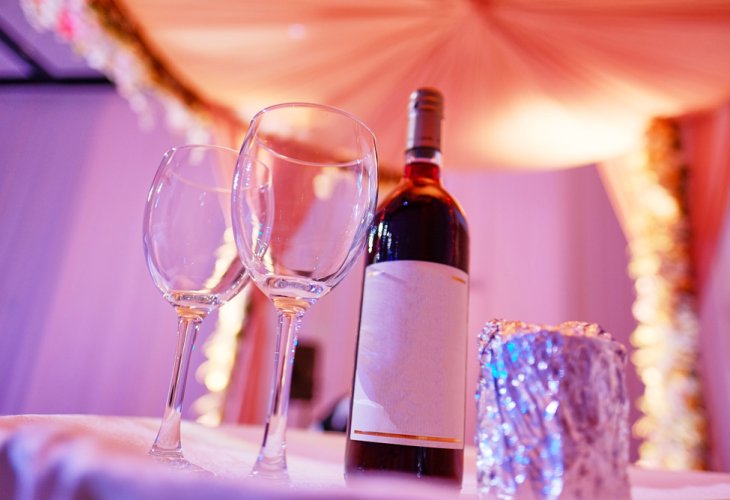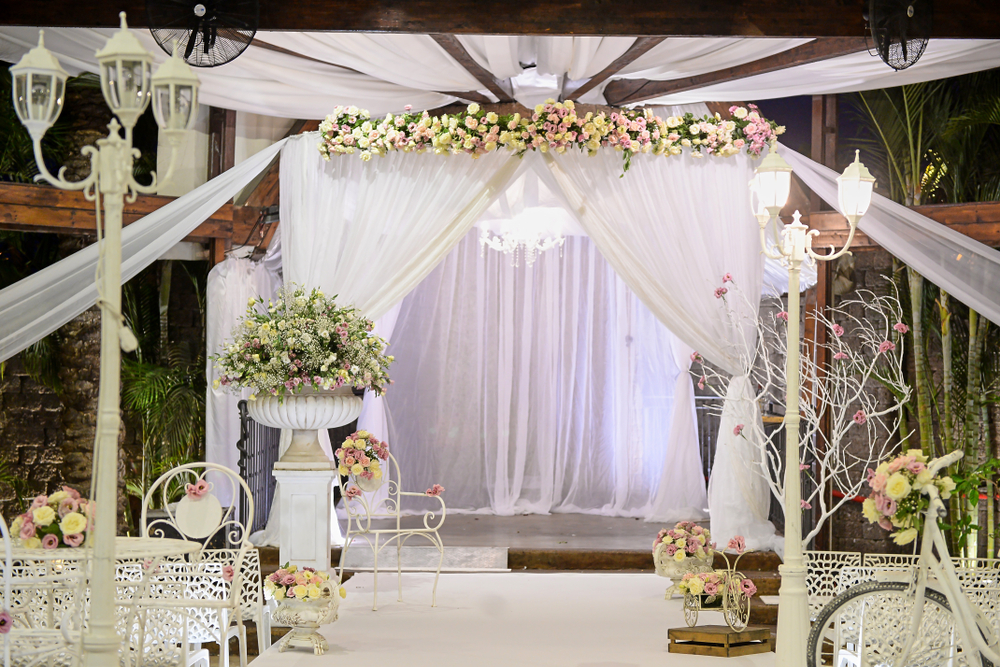Faith
Why Marry Through the Rabbinate? Protecting Jewish Identity and Unity
Discover why halachic marriage safeguards Jewish continuity, prevents assimilation, and preserves our people across generations
 (Photo: shutterstock)
(Photo: shutterstock)Ari asks: "As a ba’al teshuva (returnee to Jewish observance), I’ve noticed that some of my traditional friends oppose getting married through the Rabbinate. Instead, they want to create their own ceremony without a rabbi, God forbid. I find myself in a very uncomfortable situation when I receive such invitations, because it causes a crisis in my friendships. Could you help me explain to them why it is important to marry through the Rabbinate and sanctify the marriage according to the law of Moses and Israel?”
* * *
Shalom Ari, and thank you for your important question.
I would appeal to your friends’ Jewish heart — the desire to preserve our Jewish identity and unity as a nation.
A “civil marriage” damages the Jewish people and leads to its eventual disappearance. I am certain that no Jew wants to contribute to the loss of the Jewish nation or to join forces, even unintentionally, with those who seek to erase us. After such a strong statement, your friends will naturally ask: “What’s the connection between civil marriage and the destruction of the Jewish people?”
The answer is simple: for thousands of years, our survival as Jews depended on the fact that Jews married only according to the law of Moses and Israel.
Marriage and Jewish Survival
Beyond the serious halachic (Jewish legal) obligation, this is also a matter of historical survival. Halachic marriage ensured that Jews married only other halachically valid Jews. Rabbis and kosher witnesses recorded and safeguarded Jewish lineage from generation to generation, preventing outsiders from merging into the Jewish nation and erasing its identity.
What happens if marriages take place without rabbis and kosher witnesses? Exactly what has already happened in America, where civil and “Reform” weddings are common: Jews marry non-Jews, lose their Jewish identity, and within a generation, disappear. Even if descendants later want to return and marry Jews, they cannot always prove that their ancestors were in fact Jewish, because they never had a proper Jewish wedding.
The Reform community, which abandoned halachic marriage, has lost half its numbers since the 1950s and is on a clear path toward extinction. The only Jewish communities that survived are those who married according to halacha.
This danger exists in Israel as well, where questionable conversions and non-Jews identifying as “Israelis” have blurred boundaries. Many tragic cases have emerged of Jews who discovered — sometimes after years of marriage, that their spouses were in fact Christians who demanded baptism for their children. Such situations could never happen with a halachic Jewish wedding, where lineage is verified.
The Long-Term Consequence
Some may argue: “But I know I’m Jewish, and so is my partner. What’s the problem with a civil wedding?”
Even if they are 100% Jewish, their participation in civil marriage legitimizes a system that allows non-Jews to infiltrate the Jewish people. They indirectly become partners in the weakening of the Jewish nation.
Future generations won’t be able to prove their Jewishness. In a few decades, civil marriage will split the Jewish people into two groups:
Those who married according to halacha, with recognized rabbinic testimony of their Jewishness.
Those who married civilly, among whom will be many non-Jews and questionable lineages.
This will create a tragic division of two separate peoples, unable to intermarry. Children and grandchildren of those who married civilly may be lost to the Jewish people forever.
![(Photo: shutterstock)]() (Photo: shutterstock)
(Photo: shutterstock)
 (Photo: shutterstock)
(Photo: shutterstock)Jewish Identity Is Unique
This is not only a technical matter. Jewish identity is unlike any other national identity.
Nations such as Russians or Frenchmen are defined by external factors including land, language, culture, food, and government. Jews, however, survived 2,000 years without a homeland, army, or unified culture. We were scattered across the globe, speaking different languages, eating different foods, and dressing differently — yet we remained united as one people.
What held us together was not geography or culture, but faith and halacha (Jewish law): brit milah (circumcision), bar mitzvah, mezuzah, Shabbat, Yom Kippur, Passover, Jewish burial, and of course, Jewish marriage. These mitzvot created a chain of generations, linking Jews of Yemen, Poland, Iraq, and Morocco into one people.
Abandoning halachic marriage is therefore not just a personal choice, but it tears apart the fabric of our shared identity.
A Chain of Generations
Tell your friends: They know they are Jewish only because every one of their ancestors for 3,300 years married through halacha, according to the law of Moses and Israel. Each link in this chain is vital. If even one ancestor had chosen a civil marriage, their Jewish identity would have been lost.
How tragic would it be if, after thousands of years of survival through unimaginable persecution — from Romans and Greeks to Crusaders, Inquisitors, Muslims, and Nazis, a Jew today chose to break the chain with a civil wedding?
Our enemies tried to destroy our identity through external force. But the real danger comes from within, when Jews themselves abandon what kept us alive.
We remain Jews only by marrying with kosher witnesses and rabbis, “according to the law of Moses and Israel.” Civil marriage undermines Jewish survival.
As the Torah commands clearly: “Do not intermarry with them… For they will turn your children away from following Me” (Devarim 7:3–4). By choosing a Jewish wedding, your friends are not only fulfilling a religious obligation, but they are safeguarding their children, grandchildren, and the entire Jewish nation.

